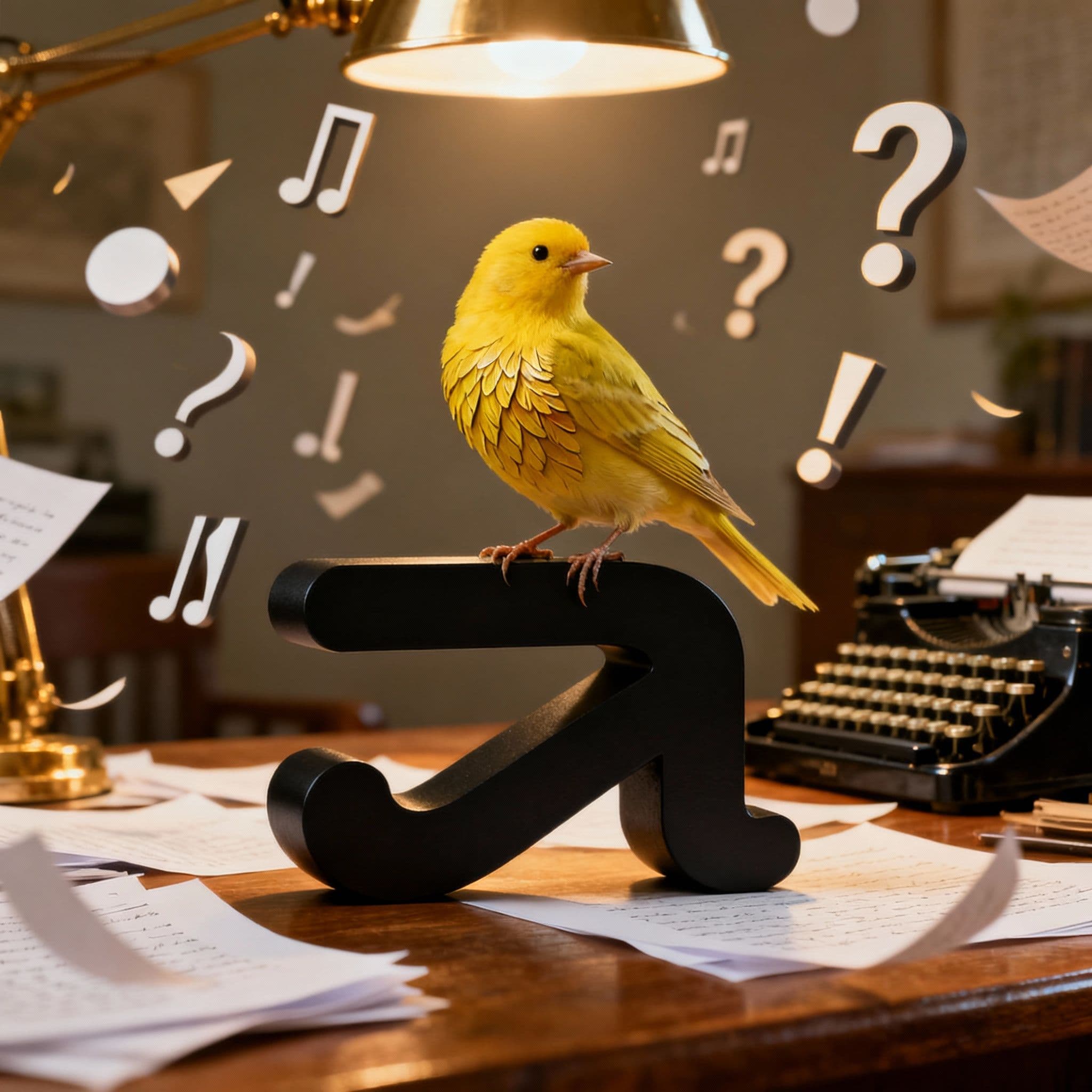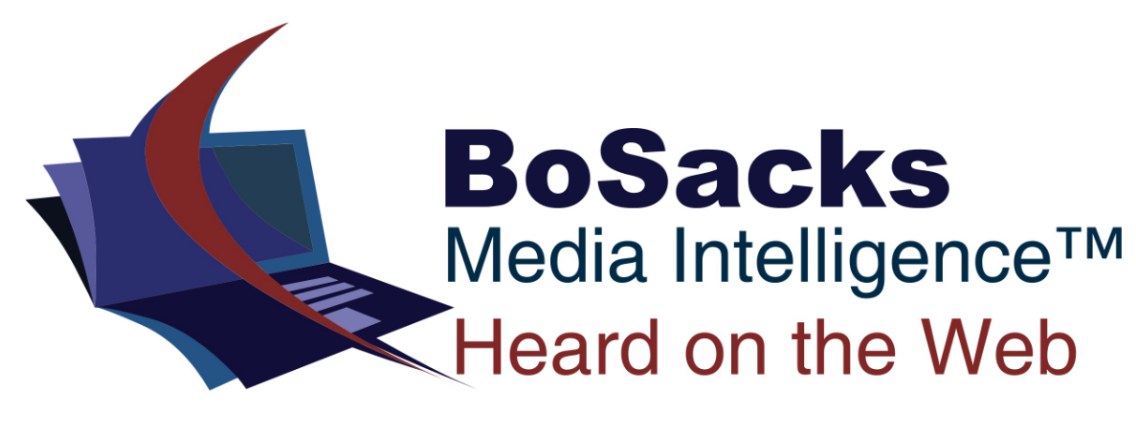BoSacks Speaks Out; The Em Dash Is Not the Villain—It’s the Canary
By Bob Sacks
Thu, Sep 18, 2025

The New York Times just lobbed a linguistic grenade: ChatGPT uses too many em dashes. Cue the pearl-clutching from people who probably can't tell a semicolon from a wink. Apparently, this humble squiggle is now a red flag for robot prose, a syntactic scarlet letter. So I did what any ink-stained, untrained writer skeptic would do: I dug in. I researched the em space. Not to defend the bots (heaven knows they don't need my help taking over the world), but to understand the fuss.
And here's the kicker: I didn't know the em dash was one of the most human marks on the page. Shows you how much this self-taught hack knows about his own tools, right? Turns out, it's practically literary DNA. Dickens wielded it like a saber. Dickinson turned it into breath. Stephen King's characters practically speak in dashes. It's the punctuation of interruption, of thought mid-flight. It's messy, organic, alive.
So why the sudden panic over a punctuation mark? Because the em dash isn't just a line; it's a fault line. It's become a proxy for a much bigger fight: who owns language in the age of AI, and who gets to define what "real writing" looks like.
And I'll admit, I've been part of the problem. Chef's kiss to my own ignorance.
The Punctuation Pretender's Confession
I never went to J-school. I've lectured at a few, sure, but I'm a field-trained, ink-splattered contrarian who learned the craft of writing by doing, not diagramming. Picture a guy who learned to cook by burning toast for twenty years and somehow ended up teaching culinary theory. That's me with grammar rules.
When it comes to the em dash, I've long been a reluctant participant. I use it, occasionally, but never with confidence. It always feels like punctuation cosplay, like I'm borrowing someone else's rhythm while wearing an ill-fitting literary tuxedo.
Truth is, I've harbored a quiet prejudice against the em dash. Not out of malice, but suspicion born from my own insecurity. If I see more than three in an article, I assume it was written by a bot. It's become a kind of uncanny tell, a syntactic fingerprint of machine-made prose. And until recently, I was fine with that assumption. Smugly fine, if we're being honest.
But then I read the Times piece, and something shifted. Like watching someone else trip and realizing you've been walking funny your whole life. I saw the dash not as a glitch, but as a ghost. A remnant of human rhythm that I'd been too stubborn (or stupid) to recognize.
Dickens used it. Dickinson practically inhaled it. Meanwhile, I've been treating it like suspicious seafood at a gas station buffet. It's not just punctuation; it's breath, interruption, thought mid-leap.
So yes, I stand corrected. Or sit, depending on the chair and the mood. The em dash isn't the enemy. It's a relic of real writing. And maybe, just maybe, it's time this old dog learned a new punctuation trick.
That shift in perspective matters, because it points to a deeper cultural divide that I've been too myopic to see clearly.
Writing-Writing vs. Keyboard Exhaust
The Times nailed one thing: most of what we type today isn't writing, it's digital exhaust. Emails, Slack pings, DoorDash updates. Functional, fleeting, forgettable. As someone who's contributed more than his share of forgettable prose, I feel qualified to recognize the genre.
"Writing-writing," the kind that's crafted, edited, and meant to last, is now the exception. And that matters. Because publishers used to traffic in permanence. We sold prose like perfume: distilled, rare, and worth paying for.
Now? We've trained the machines on our finest vintages, and they're bottling boxed knockoffs. We gave them our archives, our glossies, our literary DNA, and they're selling it back as algorithmic filler. It's like teaching your replacement how to do your job, then wondering why they got promoted.
Print Is Not Competing with TikTok (Thank God)
This is where the em dash debate hits paydirt, and where my earlier blindness becomes instructive. If most writing today is disposable, designed to be skimmed, swiped, and forgotten, then intentional writing is luxury. A magazine isn't just paper. It's permanence. It's not competing with TikTok captions or Instagram carousels. It's competing with cultural amnesia.
Digital platforms thrive on velocity. They reward brevity, repetition, and algorithmic mimicry. The goal isn't depth, it's dopamine. A TikTok caption might be clever, but it's engineered for the scroll, not the shelf. It's designed to vanish faster than my credibility when I mispronounce "epitome" in public.
Print, by contrast, lingers. It asks for time. It demands attention. It offers a beginning, middle, and end, not just a loop that makes you question your life choices at 2 AM.
Can readers still feel the difference? Between a sentence shaped by tradition and one spat out by a bot. Between a paragraph that's been edited, argued over, and read aloud (and one that's been stitched together by predictive text). That's our edge. That's our opening.
Publishers should be leaning into print's role as artifact, not ephemera. A magazine isn't an "everyday use-case." It's a ritual. A choice. A collectible. It's the literary equivalent of vinyl: warm, intentional, and built to last. You don't toss it in the recycling bin after one read. You stack it, archive it, pass it on.
And here's the kicker: in a world flooded with synthetic content, authenticity becomes a luxury good. A well-edited magazine isn't just a product; it's proof of human touch. It's a declaration that someone cared enough to shape the words, choose the paper, and design the experience. That's not nostalgia, it's strategy.
Print isn't trying to win the attention war by shouting louder. It's winning by whispering smarter. By being the thing that doesn't beg for clicks but earns rereads. By standing still while everything else scrolls past like my patience during a software update.
AI Colonialism: The Great Editorial Heist
Let's not sugarcoat it. AI is feasting on our archives like I feast on free conference bagels: voraciously and without shame. Every digitized issue, every scanned backfile, every literary corpus, hoovered up by corporate systems that don't credit, don't compensate, and don't care. This is editorial extraction. Cultural colonialism in code.
And we let it happen. We treated our archives like clutter, not capital. Meanwhile, tech giants saw the gold. They knew that centuries of editorial labor (the Dickens, the Dickinson, the niche mags, and yes, even my meandering screeds) were the rocket fuel for their models.
We basically handed over the keys to the literary kingdom and then acted surprised when they changed the locks.
The Dash Is a Signal, Or Just Noise?
So what does a punctuation mark have to do with publishing’s future? Maybe everything. Maybe nothing. Depends on whether readers can still spot the fingerprint of craft, or if they’re just squinting at style guides while a machine hums in the background.
We like to believe that “writing-writing” still matters. That a well-placed dash, a sly semicolon, a sentence with soul, signals something unmistakably human. But let’s be honest: most readers aren’t forensic stylists. They’re skimmers. Scrollers. Sentiment chasers. And if AI can mimic voice, rhythm, even the illusion of insight, then what exactly are we defending?
The em dash may be small, but it’s loud. It says: pause here. It says: I’m clever. It says: this sentence has a heartbeat (even if the writer doesn’t have a pulse). And maybe that’s fine. Maybe the real legacy isn’t in proving we wrote it, but in proving it was worth reading.
Publishers, wake up. If a dash can spark debate, imagine the cultural capital buried in your archives. Not as training fodder, but as editorial DNA. Protect it. Monetize it. Or at least stop pretending that authenticity lives in punctuation.
And maybe, just maybe, us old hacks should stop being so suspicious of the tools, especially when the tools are just doing what we taught them. Sometimes the problem isn’t the algorithm. Sometimes it’s the person holding the pen, clinging to purity while ignoring the craft.
Now, if someone could just explain the difference between “further” and “farther,” I’d really appreciate it. Asking for a friend.
